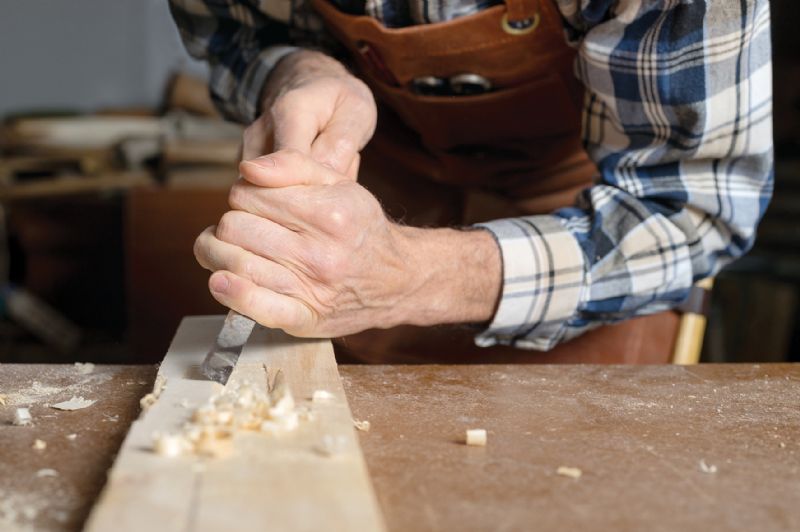- Home
- News, Articles & Reviews
We are hiring! Please click here to join our growing magazine delivery team in Gloucestershire!
Areas
Environment
Archive

The decline of heritage crafts
All Areas > Environment > Save the Planet
Author: Hannah Basnett, Posted: Tuesday, 22nd October 2024, 09:00
While we often hear about endangered wildlife in the UK, such as the water vole and hedgehog, there is another, less visible loss: the extinction of traditional crafts.
In the last 15 years, four crafts, including cricket ball and lacrosse stick making, have disappeared. This loss is not only cultural but also has serious implications for sustainability and the environment.
Heritage crafts are deeply connected to nature. Historically, artisans used natural materials sustainably. In Gloucestershire, a region rich in craft heritage, trades like salmon putcher making and arrowhead crafting were linked to the local landscape. Craftsmen worked with wood, clay and wool, fully utilising resources without depleting them.
Unlike today’s throwaway culture, heritage crafts promote sustainability by minimising waste and relying on renewable materials. Green woodworkers, for example, use freshly cut timber from sustainable sources, while traditional paper-makers use fibres like cotton and hemp. These methods teach us how to live in harmony with the environment, creating long-lasting, repairable products instead of disposable goods.
Careful, resource-efficient techniques of traditional crafts
Unfortunately, many of these skills are vanishing. Mass production and synthetic materials have overshadowed the careful, resource-efficient techniques of traditional crafts. As these skills disappear, so does the knowledge of how to live sustainably. Without artisans to restore ancient wagons or repair handcrafted shoes, such items become museum pieces, while modern, less sustainable alternatives take over.
The Heritage Crafts Association (HCA) has identified critically endangered crafts, such as straw hat making, scissor making and stone carving. Artisans like Fergus Wessel (stone carving) and Katie Beard (typesetting) are among the few preserving these traditions. The extinction of these crafts is akin to biodiversity loss, affecting the balance of a sustainable cultural ecosystem.
So, what can we do to help preserve these invaluable skills? Buying handmade products from local artisans supports their craft and encourages sustainable production methods. Whether it’s a hand-bound book or a bespoke piece of furniture, these items are not only unique, but often more environmentally friendly than mass-produced goods.
For those seeking hands-on engagement, learning a heritage craft is a rewarding way to connect with tradition and sustainability. Many artisans offer workshops and courses where you can learn everything from green woodworking to stone carving. Not only is this good for mental wellbeing, but it also helps keep these crafts alive.
Lastly, consider joining organisations like the HCA to advocate for the protection of endangered crafts. By supporting and engaging with heritage crafts, we can reduce waste, promote sustainability, and preserve valuable cultural traditions for future generations.Other Images
Copyright © 2026 The Local Answer Limited.
Unauthorized use and/or duplication of this material without express and written permission from this site's author and/or owner is strictly prohibited. Excerpts and links may be used, provided that full and clear credit is given to The Local Answer Limited and thelocalanswer.co.uk with appropriate and specific direction to the original content.More articles you may be interested in...


© 2026 The Local Answer Limited - Registered in England and Wales - Company No. 06929408
Unit H, Churchill Industrial Estate, Churchill Road, Leckhampton, Cheltenham, GL53 7EG - VAT Registration No. 975613000You are leaving the TLA website...
You are now leaving the TLA website and are going to a website that is not operated by us. The Local Answer are not responsible for the content or availability of linked sites, and cannot accept liability if the linked site has been compromised and contains unsuitable images or other content. If you wish to proceed, please click the "Continue" button below:




